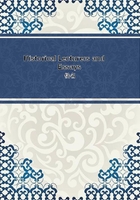All imperatives are expressed by the word ought [or shall], and thereby indicate the relation of an objective law of reason to a will, which from its subjective constitution is not necessarily determined by it (an obligation). They say that something would be good to do or to forbear, but they say it to a will which does not always do a thing because it is conceived to be good to do it. That is practically good, however, which determines the will by means of the conceptions of reason, and consequently not from subjective causes, but objectively, that is on principles which are valid for every rational being as such. It is distinguished from the pleasant, as that which influences the will only by means of sensation from merely subjective causes, valid only for the sense of this or that one, and not as a principle of reason, which holds for every one.**The dependence of the desires on sensations is called inclination, and this accordingly always indicates a want. The dependence of a contingently determinable will on principles of reason is called an interest. This therefore, is found only in the case of a dependent will which does not always of itself conform to reason; in the Divine will we cannot conceive any interest. But the human will can also take an interest in a thing without therefore acting from interest. The former signifies the practical interest in the action, the latter the pathological in the object of the action. The former indicates only dependence of the will on principles of reason in themselves; the second, dependence on principles of reason for the sake of inclination, reason supplying only the practical rules how the requirement of the inclination may be satisfied. In the first case the action interests me; in the second the object of the action (because it is pleasant to me). We have seen in the first section that in an action done from duty we must look not to the interest in the object, but only to that in the action itself, and in its rational principle (viz., the law).
A perfectly good will would therefore be equally subject to objective laws (viz., laws of good), but could not be conceived as obliged thereby to act lawfully, because of itself from its subjective constitution it can only be determined by the conception of good.
Therefore no imperatives hold for the Divine will, or in general for a holy will; ought is here out of place, because the volition is already of itself necessarily in unison with the law. Therefore imperatives are only formulae to express the relation of objective laws of all volition to the subjective imperfection of the will of this or that rational being, e.g., the human will.
Now all imperatives command either hypothetically or categorically. The former represent the practical necessity of a possible action as means to something else that is willed (or at least which one might possibly will). The categorical imperative would be that which represented an action as necessary of itself without reference to another end, i.e., as objectively necessary.
Since every practical law represents a possible action as good and, on this account, for a subject who is practically determinable by reason, necessary, all imperatives are formulae determining an action which is necessary according to the principle of a will good in some respects. If now the action is good only as a means to something else, then the imperative is hypothetical; if it is conceived as good in itself and consequently as being necessarily the principle of a will which of itself conforms to reason, then it is categorical.
Thus the imperative declares what action possible by me would be good and presents the practical rule in relation to a will which does not forthwith perform an action simply because it is good, whether because the subject does not always know that it is good, or because, even if it know this, yet its maxims might be opposed to the objective principles of practical reason.
Accordingly the hypothetical imperative only says that the action is good for some purpose, possible or actual. In the first case it is a problematical, in the second an assertorial practical principle. The categorical imperative which declares an action to be objectively necessary in itself without reference to any purpose, i.e., without any other end, is valid as an apodeictic (practical) principle.
Whatever is possible only by the power of some rational being may also be conceived as a possible purpose of some will; and therefore the principles of action as regards the means necessary to attain some possible purpose are in fact infinitely numerous. All sciences have a practical part, consisting of problems expressing that some end is possible for us and of imperatives directing how it may be attained.
These may, therefore, be called in general imperatives of skill.
Here there is no question whether the end is rational and good, but only what one must do in order to attain it. The precepts for the physician to make his patient thoroughly healthy, and for a poisoner to ensure certain death, are of equal value in this respect, that each serves to effect its purpose perfectly. Since in early youth it cannot be known what ends are likely to occur to us in the course of life, parents seek to have their children taught a great many things, and provide for their skill in the use of means for all sorts of arbitrary ends, of none of which can they determine whether it may not perhaps hereafter be an object to their pupil, but which it is at all events possible that he might aim at; and this anxiety is so great that they commonly neglect to form and correct their judgement on the value of the things which may be chosen as ends.















